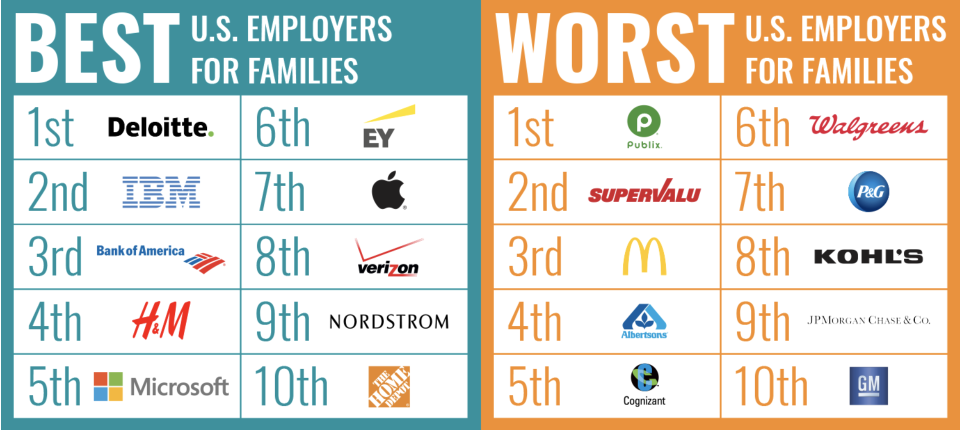The one thing 85% of dads would do anything for
Dads are increasingly more involved in child care and housework. According to a 2016 Pew study, dads spend 8 hours per week on childcare, triple the amount of hours than fathers in 1965; and 10 hours per week on housework, up from 4 hours in 1965. Both parents may benefit when fathers are transparent about these responsibilities, according to Katherine Goldstein, creator and host of The Double Shift podcast.
“If [fathers] say, ‘I have to leave at 4 p.m. because I have to take my kid to the dentist,’ that creates a culture where people can feel honest and supported in their family challenges and it can definitely have a really important impact on working mothers,” she said.
And dads want to be more present, especially during crucial periods of development as cited in a new report, State of the World’s Fathers, where 85% of the fathers said they would be willing to do anything to be involved in the early weeks and months of caring for their newly born or adopted child. But the United States is still the only industrialized country that does not have a national paid leave policy, and as of March 2018 only 17% all civilian workers had access to paid family leave, according to the Bureau of Labor Statistics National Compensation Survey.
This leaves a greater opportunity for companies to step up when it comes to their paid leave policies. Calling attention to the companies that do it the best, and the worst, a nonprofit campaign called Paid Leave for the US ranked paid leave policies at the largest U.S. employers and found Deloitte was the best company for families, offering 16 weeks of paid leave for both salaried and hourly employees. IBM, Bank of America, H&M, and Microsoft were included in the top 5.

The report named Publix, Supervalu, and McDonalds as the worst three companies for paid leave policies, with a note that several of the 70 largest US companies they surveyed declined to disclose their policies at all.
Parental leave can have a huge impact for parents and their new children. According to a study by Cornell University, paid parental leave for fathers increases economic well-being for families, promotes parent-child bonding, and increases gender equality at home and at work.
“We need to think about paid leave not as a special perk for certain valued members of society, but think about it as something that is necessary for our society to continue,” Goldstein says.
If fathers are offered paid leave, it’s crucial they take advantage of it, as it levels the playing field for men and women at work, Goldstein says. “If you give fathers 8 weeks of paid leave and nobody takes more than one or two weeks, it's not effective and it creates biases because you presume that a mother is going to be out much longer than a father,” she says.
When it comes to balancing work and family life, more families are reconsidering their options. For example, the number of stay-at-home dads reached an all-time high in 2017: 20.2% of all stay at home parents in the U.S. are fathers, according to a Zillow analysis of Census data.
For stay-at-home fathers, building a community is critical to help them find their footing, says Jonathan Heisey-Grove, president of The National At-Home Dad network.
“It’s ingrained in our society to say, ‘Dad’s can’t do it,’” Heisey-Grove says. “The societal norm is that mom takes care of the kids and dad brings home the money, but it is becoming a little bit easier to learn how to be a parent and be a father at home.”
As parental roles evolve, it’s important workplaces follow suit, Goldstein says.
“Work culture is getting increasingly demanding and I think parenting culture is getting increasingly demanding,” she says. “Workplaces need to think holistically about how to support all of their employees at all stages of their life.”
WATCH MORE
US paid vacation policy is embarrassing: chart

 Yahoo Finance
Yahoo Finance 